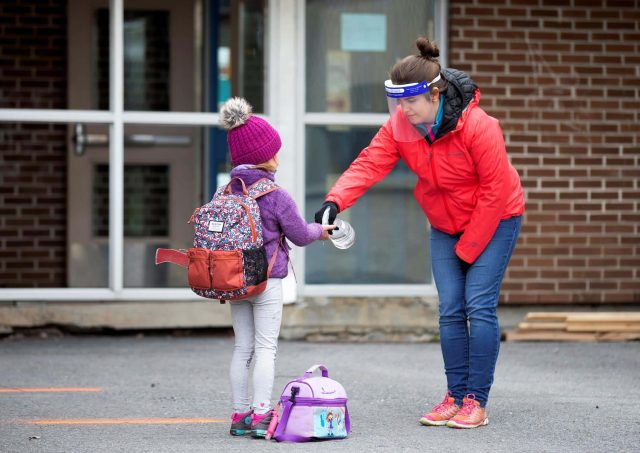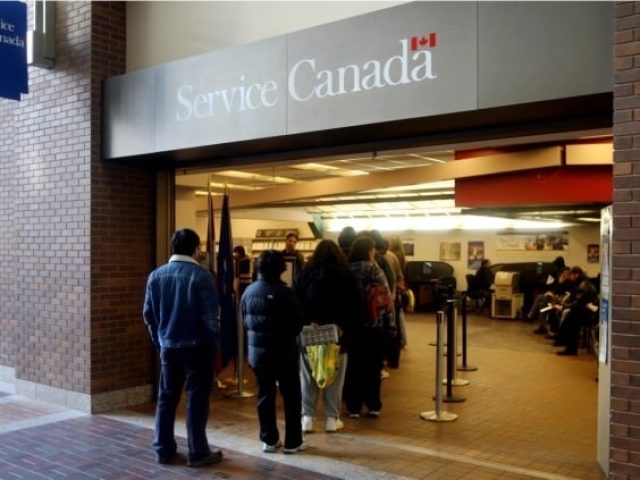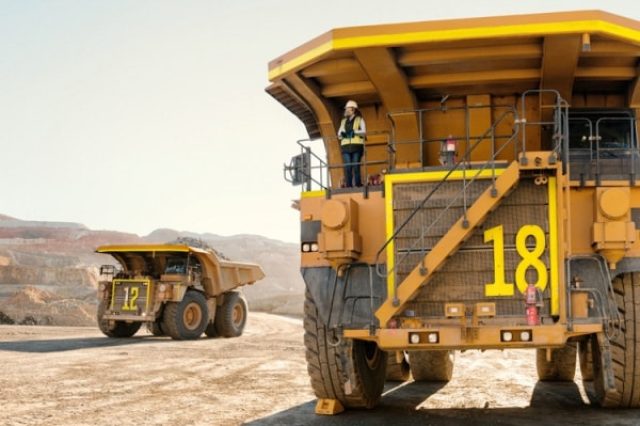After five years of suffering in eco-zealot purgatory under the Trudeau Liberals, the half-million or so Canadians whose livelihood depends on the oil and natural gas industry finally got some good news: The oil sands are now part of the federal government’s green energy agenda! As Natural Resources Minister Seamus O’Regan told the Financial Times’ Derek Brower earlier this month, “There’s no way we are reaching [Canada’s 2050 greenhouse gas emissions target of] net-zero without Alberta.” O’Regan even went on to express support for new pipelines that would allow Western Canada’s crude oil output – and exports – to grow by over 1 million barrels per day next year and continue to rise after that. In stark contrast to the Liberal government’s previous vilification of the industry, O’Regan lauded the ingenuity of Albertans in finding ways to “draw oil out of sand”.

This is a stunning reversal from a government whose leader infamously mused about “phasing out the oil sands”. It could hardly have been imagined prior to the coronavirus crisis. Why now? The answer came in the minister’s own words: “Our prosperity and our economy are still highly dependent on [oil and natural gas production].” How dependent? This industry is by far the largest contributor to both Canada’s overall GDP and the nation’s net export revenue – each totalling over $100 billion per year. And Alberta has long been the largest net contributor to Ottawa’s coffers (meaning monies collected in Alberta minus federal funding dispersed in Alberta or to Albertans). The disparity amounted to a cumulative $95 billion from 2014-2018 – greater than that for all other provinces put together. And, keep in mind, Alberta was enduring a brutal economic downturn in all but the first of those five years.
The Covid-induced economic recession has brought about a projected decline of $83 billion in federal revenue in the current fiscal year, according to former Finance Minister Bill Morneau’s July 8 “fiscal snapshot”. This shows why reversing course and once again growing Ottawa’s most important revenue source is so critical. The snapshot projected an astonishing $343 billion federal deficit this year. Two days later, the government announced changes to the employment insurance system that will cost a further $37 billion, taking the deficit to $380 billion.

Further spending escalation is certain, including help for stretched provincial health care budgets, cities unable to fund public transportation and aid to hard-hit business sectors. Indeed on August 26, Justin Trudeau announced that “Canada” would “give” the provinces $2 billion to help with the reopening of schools. It is now clear that by next year our national debt will exceed $1.2 trillion. This is twice the amount when the Liberals came to power in 2015 and will represent well over 50 percent of the country’s Covid-battered GDP.
The last time Canada faced such an enormous financial challenge was after the Second World War. Back then, demographics came to the rescue: the post-war “baby boom”, combined with soldiers returning home to help produce desperately needed consumer goods, transformed the economic picture. Today, we have the complete reverse. Decades of deteriorating birth rates have created a baby-bust while those same baby-boomers are leaving the workforce and driving increased public spending for old-age security payments and eldercare.


And yet, as the song goes, “You ain’t seen nothin’ yet”. Covid-19 portends a massive restructuring of vital business sectors. Retail, which employs millions and occupies vast amounts of real estate from street-side shops to malls, faces profound uncertainty from the pandemic-driven shift to online shopping. The various lockdowns and near-lockdowns facilitated an array of new communication tools that allow many more to work remotely with reasonable efficiency and productivity, emptying office towers. It thus seems reasonable to expect the number of displaced workers to increase.
The coronavirus has fostered escape to an ephemeral state in which reality is magically replaced by an imagined world. It is incomprehensible to hear our government declare the pandemic has created an “opportunity for public investment in green restructuring of the economy” while further hobbling the proven traditional drivers of wealth.
The potential impacts are staggering, including mass unemployment and devaluation of commercial real estate assets that represent key holdings for hundreds of companies as well as retirement nest-eggs for thousands of small businesspeople and that also, among other things, underlie public and private pension funds. The full effects of these and other post-Covid structural shifts are yet to be known, but it’s clear they will be broad, deep and in many cases devastating. Government tax revenues will fall, while the need for support and training will add still more costs.

It is an alarming picture, yet it seems the coronavirus has fostered escape to an ephemeral state in which reality is magically replaced by an imagined world that is whatever one wishes it to be. It is incomprehensible to hear our government declare the pandemic has created an “opportunity for public investment in green restructuring of the economy”, which translates into subsidizing windmill and solar power companies while further hobbling the proven traditional drivers of wealth. How will that work out? Ask Ontarians, who’ve seen residential and business electricity rates skyrocket to produce very expensive and completely unreliable power.
Navigating these shoal-riddled waters would be difficult enough if our economic outlook had been strong before the crisis. But alas, that wasn’t the case. Statistics Canada data shows that, since the election of the Trudeau government in 2015, investment in 10 of the 15 major business sectors has dropped by 17 percent as both Canadian and foreign investors fled. Over $185 billion in capital left the country as investors sold out and redeployed their funds. This mirrored a precipitous drop for Canada’s position in both the World Bank’s Ease of Doing Business ranking and the World Economic Forum Competitive Index. In reality, Canada’s strong employment rate over that period was driven by unsustainable deficit spending and not by private-sector investment and genuine economic performance.


Reigniting private-sector investment that will generate rather than consume government revenues will require a profound and clear reversal of both attitude and action by the Trudeau Liberals. Minister O’Regan’s comments about the oil and natural gas industry are positive, but so far they are just talk. They must be followed by clear and prompt federal government action. Similar encouragement and action are needed for other natural resource sectors, including in mining where, for example, an Alberta coal mine expansion proposal has suffered recent federal action to stop it.
Here’s a note to our new federal Finance Minister, Chrystia Freeland: Restarting private-sector investment and job creation is the only hope for keeping the good ship Canada from smashing on the post-Covid rocks and sinking a nation with such great potential. Dial back the ideology, tone down the woke attitude and focus on the national interest.
Gwyn Morgan is the retired founding CEO of EnCana Corp., formerly Canada’s largest producer of natural gas.





